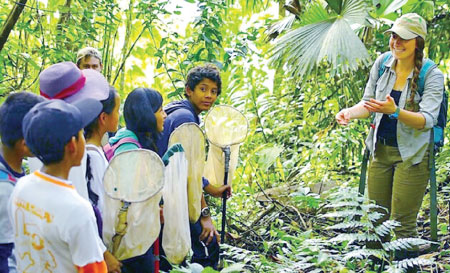Educational tours have long been recognised as valuable supplements to classroom learning. These excursions provide students with the opportunity to explore real-world applications of theoretical knowledge, fostering a holistic understanding of various subjects. The importance of educational tours cannot be overstated, as they contribute significantly to academic, personal, and social development.
A primary benefit of educational tours is the practical application of classroom knowledge. These trips offer students the chance to witness firsthand the concepts and theories they’ve learned in a real-world context. Whether it’s a historical site, a scientific laboratory, or an industrial facility, students can bridge the gap between theory and practice, gaining a deeper and more meaningful comprehension of their academic subjects.
 These tours promote experiential learning, which is a hands-on, immersive approach to education. Engaging multiple senses and experiences, students are more likely to remember and understand the information encountered during these trips. Experiential learning fosters a deeper connection to the subject matter, encouraging a lifelong love of learning.
These tours promote experiential learning, which is a hands-on, immersive approach to education. Engaging multiple senses and experiences, students are more likely to remember and understand the information encountered during these trips. Experiential learning fosters a deeper connection to the subject matter, encouraging a lifelong love of learning.
Cultural exposure
Beyond the academic realm, educational tours expose students to diverse cultures, traditions, and ways of life. Travelling to different locations allows students to broaden their perspectives, develop tolerance, and appreciate the richness of global diversity. This cultural exposure contributes to the development of well-rounded individuals with a global mindset, an essential quality in today’s interconnected world.
Team building and social skills
Since these tours often involve group activities and teamwork, fostering the development of social skills and interpersonal relationships, students learn to collaborate, communicate, and problem-solve in real-world situations, skills that are vital for success in both academic and professional settings. These experiences contribute to the overall personal growth of students, helping them become effective team players.
Travelling on educational tours provides students with a sense of independence and responsibility. Being exposed to new environments, managing their schedules, and interacting with diverse people contribute to the development of confidence and self-reliance. These qualities are essential for students as they transition into higher education and eventually enter the workforce.
Such trips play a crucial role in enhancing the overall educational experience for students. From practical application of classroom knowledge to cultural exposure and personal development, these excursions offer a myriad of benefits. As educational institutions continue to recognise the significance of experiential learning, the inclusion of well-planned and thoughtfully executed educational tours will undoubtedly remain an integral part of the academic journey, shaping the minds and characters of future generations.









